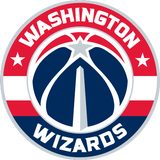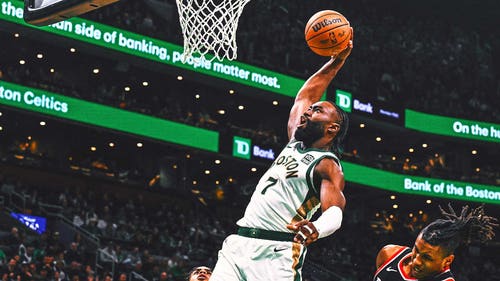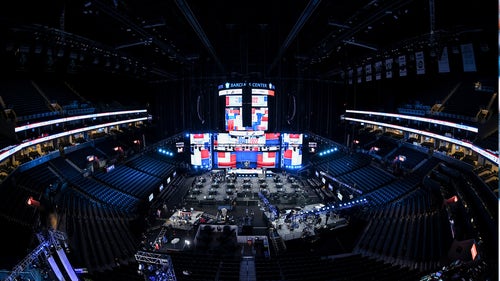
Deadline Pressure Building For East Challengers
The Eastern Conference class of if-everything-breaks-right contenders heard two distinct calls to action on Tuesday: Kevin Love underwent arthroscopic surgery on his balky left knee, depriving the Cavs of a valuable contributor for the next six weeks; and Toronto flipped one of its many rotation wings (Terrence Ross) and a future first-rounder for Orlando’s Serge Ibaka, shoring up its most obvious need. Those moved by opportunity might see Love’s injury as an opening. Cleveland holds the top seed by just 2.5 games, an advantage made vulnerable by the Cavs’ compounding injuries. Those motivated to keep up with the Raptors could see the Ibaka deal as a direct challenge. A versatile defender like Ibaka broadens the range of effective Toronto lineups overnight. Suddenly this is a team that can run small without much cost, if any at all, to its defense.
Follow either motivation and you end up in the same places: Boston and Washington. Both built rosters and cultivated talent for just this kind of moment. Playing in the East means striving to get by in LeBron’s world—all so when the stars align, that striving might make for something more. James and the Cavs were pinched for depth as it was. J.R. Smith’s absence had pulled the entire wing rotation taut, overextending a few deep reserves in the process. Love’s injury has the potential to do the same in the frontcourt. There aren’t many winning ways for Cleveland to distribute minutes at this point that don’t involve running James ragged. Consider the crunch an invitation.
Love and Smith are slated to be back in the lineup by the postseason, but their extended absences, James’s increased workload, and the possibility of the Cavs falling out of the top seed in the conference project a certain vulnerability. That won’t not mean much for the Pacers or Bulls; to an eighth seed, any series against Cleveland will result in the same forceful end. Boston, however, could find urgency in that confluence of events. The Celtics’ greatest need is consolidation. There are too many interesting young players and valuable draft picks in the mix for each to really pay off. Boston has understandably waited through deadlines and off–seasons for not only the right offer, but the right time. This could well be it. Isaiah Thomas’s contract (which lasts through the 2017-18 season) is the closest thing Boston has to a real ticking clock. Otherwise, this is a franchise that can pivot between youth and experience as its offers allow.

There may be no better time to make good on a potential deal. Rarely does it make sense to trade for trading’s sake, but the events of the past 24 hours at least encourage a more aggressive pursuit. Boston has high-value trade assets (courtesy of the Brooklyn Nets) and the kind of varied roster that would be appealing to all sorts of potential trade partners. That would still be true even if the Celtics keep quiet through the deadline. What looms are the opportunity costs. What’s the point of building as Boston has if not to play the market opportunistically?

Washington only wishes it could. It took everything the Wizards had to piece together a starting five this capable. Even a few whiffs on the bench have come up costly, and even some of the better reserves rely on starter-heavy lineups to do any good at all. This is part of the reality for contenders in a conference with a prohibitive favorite. Sometimes it can cost so much to make an honest run at the top team—whether in cap room or trade resources—that there isn’t much left for a second push. The Wizards have their superstar, their strong support, their up-and-comer on a rookie scale deal, and their reasonably balanced bigs. Their payroll tops $103 million and their success, while damn impressive, appears capped by the demands of the back half of the rotation. The Wiz have some of the flexibility needed to compete deep into the postseason but none of the staying power.

It’s an odd situation. The Wizards have played entirely too well to make wholesale changes but haven’t been good enough for long enough to really shake loose any non-essential players from its current core. Even if there were a big enough market for Markieff Morris or Marcin Gortat, for example, there’s too much evidence that suggests both have critical, operative roles within the team’s current layout. The risks of a move just cut deeper for Washington than they would Boston as a result. The only players opponents would want are exactly those the Wizards need.
But in a situation like this one? You take the calls. You entertain ideas. You get creative. Nothing is sacred, even for a winning team finally hitting its stride. Playing for a title—or even for a conference title—means playing to the moment. Catching Cleveland in the standings could make a real difference for the Wizards, who already have more home wins than any other team in the conference. Giving up ground to Toronto, on the other hand, would swing Washington’s postseason matchups and set up an earlier date with the Cavs than any team would like.
Deadline pressure is building. The asset-rich teams within striking distance have been forced to take a long, hard look at their finances and preferred timeline. The asset-poor, on the other hand, must wrestle with hard choices on valuable players and potential mortgages on upcoming draft picks. In either case, the underlying truth is the same: Now is the time to chase quick improvement in the East’s second tier. That there is no certainty to be found—even in a conference that was dominated by a single team not long ago—means only that so much has yet to be decided.









































































































































